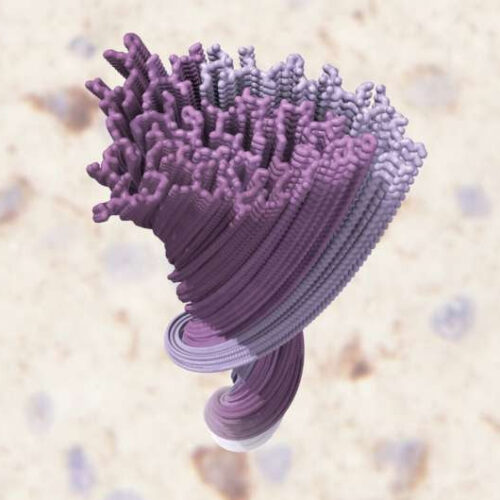by UK Research and Innovation The newly discovered structure of clumped TDP-43, from the brains of people with ALS. Credit: B. Ryskeldi-Falcon/MRC Laboratory of Molecular Biology Scientists have determined for the first time the structure of the molecule associated with amyotrophic lateral sclerosis (ALS) and multiple other neurodegenerative diseases. The scientists at the Medical Research...
Tag: <span>TDP-43</span>
When is Alzheimer’s not Alzheimer’s? Researchers characterize a different form of dementia
by NIH/National Institute on Aging A recently recognized brain disorder that mimics clinical features of Alzheimer’s disease has for the first time been defined with recommended diagnostic criteria and other guidelines for advancing and catalyzing future research. Scientists from several National Institutes of Health-funded institutions, in collaboration with international peers, described the newly-named pathway to dementia, Limbic-predominant Age-related...
A neurodegenerative-disease protein forms beneficial aggregates in healthy muscle
Protein aggregation is a characteristic of several neurodegenerative diseases. But disease-associated aggregates of the protein TDP-43 have now been shown to have a beneficial role in healthy muscle. Most neurodegenerative disorders are characterized by the build-up of clumps of proteins in the brain1. A prevailing view in the field is that these large protein assemblies...
Better understanding ALS by looking at how cells change
It took eight long years of research, but now an international team led by neuroscientists at Université de Montréal has discovered a basic molecular mechanism that better helps understand how Lou Gehrig’s disease, or amyotrophic lateral sclerosis (ALS), works. And that basic science could someday lead to new therapy for the debilitating disease, which cripples...

